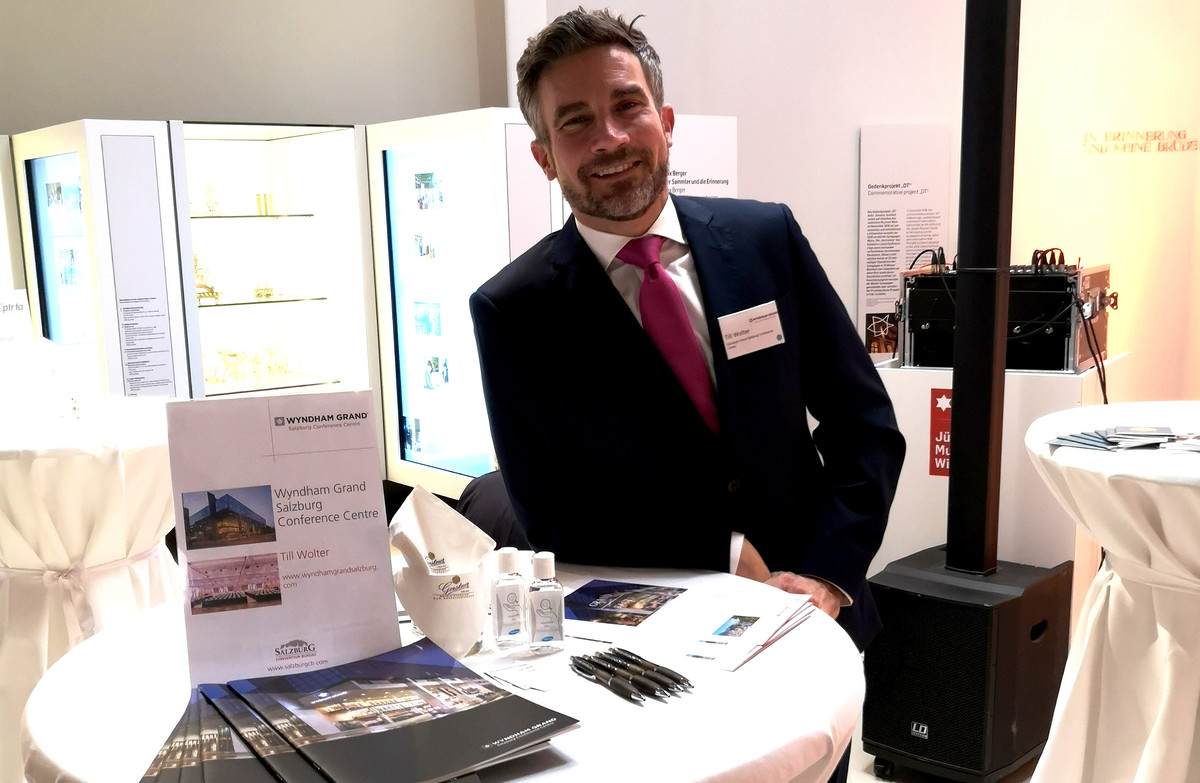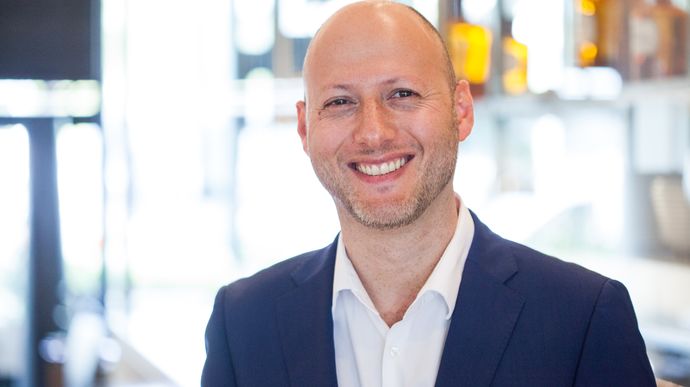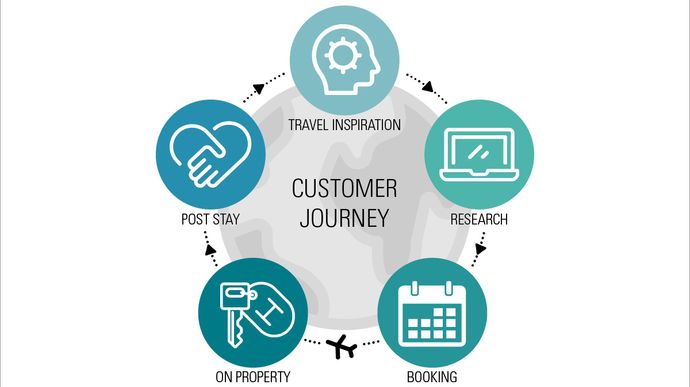Hybrid events: The digital solution of the future?
An interview with Till Wolter, Director MICE Sales

The hotel and travel industry was hit particularly hard by the pandemic. In addition to a lack of room bookings, most conferences were either cancelled or took place exclusively online. Not least because of this, it is high time to develop new concepts for meetings and conferences. One example: Hybrid events. Many employees and decision-makers were able to work from home or remotely and want to continue to enjoy these advantages in their worklife. During the past months, Till Wolter, Director MICE Sales, and his team analysed how this could be put into practice:
What exactly are hybrid events and which GCH hotels offer them?
The idea of hybrid events is to connect digital and in-person communication. On-site participants could interact with online participants, for example to connect different company locations, to hold symposiums or product presentations. Everything is possible, from small themed presentations to TV sets for large events. In general, every hotel of the GCH Hotel Group with meeting capacities is able to offer this. Hybrid events can be very different in nature; we might not need any external technology suppliers at all, or we might have to rent additional technical equipment, which increases the variability for us and our clients. Depending on the hotel, everything from small board meetings to large streaming events can be organised.
What are the advantages of hybrid events?
As the name suggests, hybrid events combine the best of two worlds. When there's a locally limited on-site event, in which a theoretically unlimited number of people can participate online. In addition, especially in times of pandemics and under the given circumstances, we are able to guarantee the safety and hygiene required for on-site participation. We organise a locally limited on-site event in which a theoretically unlimited number of people can participate online. In addition, especially in times of pandemics and under the given circumstances, we are able to guarantee the safety and hygiene conditions required for on-site participation. And of course, the concept continuosly evolves because digitalisation does not just stop in front of the hotel entrance. An increase in demand for digital events has already been evident for several years.
How do you implement these events in a corona-compliant way and how are they carried out?
In order to answer these question, I would have to cite 16 different regulations from 16 different federal states that are constantly adapted. Therefore, in a nutshell: We adhere to the respective official regulations and are always up to date. Of course, we also ensure that the correspondent hygiene regulations are complied with in all areas. The advantage of hybrid events is that on-site regulations can be implemented without a problem, and that in addition all "virtual" participants, who are "safe" anyway, can take part. We are mindful of all distance regulations in the hotels and have changed the room capacities accordingly. Furthermore, coffee breaks and meals are aligned with hygienically safe F&B concepts.
How do clients react to the idea and its implementation?
Hybrid meetings are undoubtedly a huge trend that started even before the pandemic. However, now the topic has definitely become the centre of interest. In parts, the hype is bigger than the trend itself. In short: Yes, clients ask for it and book such events. Therefore, it will certainly become a fixed component of the meeting landscape but ultimately not to the extent one would expect. People are social beings and in general want to exchange ideas with others in person. Therefore, also with regard to the hotel business in general, I am pleased to see that enquiries for "normal" in-person meetings are on the rise again. Also these are of course still an option in almost every hotel of the GCH Hotel Group.
What do the conference packages include for the organisers and what are your recommendations?
In fact, we cannot really offer ready-made packages. Why is that? We offer our standard packages and the client decides what else they want and need. There are local, regional and national technology providers, the prices differ from place to place and sometimes the client does not need any additional equipment at all. Own notebooks, notebook cameras and a corresponding app or software such as Microsoft Teams, Zoom or, a bit crazier, Houseparty are enough. It also works via mobile phone, by the way. As we can see, the whole topic of hybrid events can be flexibly adapted and customised for all sorts of clients and events.
Do you envision hybrid events as a model for the future, say post-Corona?
Yes, hybrid has come to stay. To what extent it will marginalise or replace other event options is yet to be seen. At the end of the day, the meeting landscape is large and multifaceted, hence I expect hybrid events to become yet another, sometimes bigger, sometimes smaller, component of this very diverse field.
Editor: Jan Möller
Translation: Bea Lehofer










